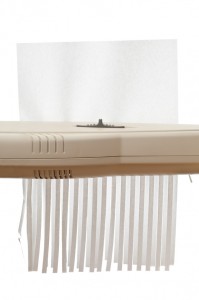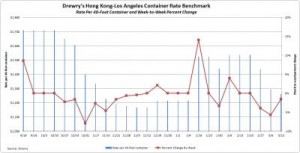
What happens to ocean freight contracts every few weeks or so
If there’s one thing to be said for ocean carriers, it’s that they never let the ink dry before looking for the next, new better deal. Unless they’re looking to give that deal back sheepishly months later because they never should have given it away in the first place.
The trade press over the last few years has covered the widely discrepant treatment between the contracts that carriers make NVOCC’s sign and the ones that Beneficial Cargo Owners (BCOs) sign. What is more glossed over is the fact that of all the contracts that people sign in their personal and professional lives, there are few that see more changes and have more exceptions.We have partners throughout the world who seem to send us new rates every two weeks because they have a “master” contract that has every possible origin and destination imaginable, but at ludicrously-high, non-market rates. Think of what could affectionately be called “the actual retail price of your showcase”. No cargo moves without a contract in place, and those contracts have to have bullets(rates between points). Some may be based on the shipper or consignee, some on the port pairs and others on the commodity shipped. In these contracts, the rates fluctuate based on the anticipated loading and bookings that the carriers have in their system or are forecasting. So for instance, low rates are nowhere to be found in the periods leading up to Chinese national holidays and the dates of announced GRI’s and new contracting periods.

Courtesy: Journal of Commerce
These aren’t commodities. This isn’t like driving past the gas station and seeing a different rate every day. These are contracted, filed rates in publicly-maintained tariffs that change with alarming frequency. How much could the market really have moved in two weeks?
Carriers are their own worst enemies at allowing these legal documents to be amended as frequently as they do. People fight and fight to get the number down because, well, shouldn’t the cost of everything go lower? But there are minimum operating costs for these vessels that have in the past that have had little or no commercial dependence upon what was being charged to shippers.
Last week at the Transpacific Maritime Conference sponsored by the Journal of Commerce, Maersk’s CEO took the stage to discuss a wide range of issues, including the deployment this summer of the Danish carrier’s Triple E container ships. These vessels will be capable of carrying 18,000 TEUs. The battle between the anticipated increase in tonnage (between 10-11 percent) and the anticipated increase in business (5-6 percent) is one that carriers hope to bridge through a combination of idling, scrapping and slow-steaming vessels which will maintain equilibrium. Carriers also said they make no money operating Panamax vessels via the Panama Canal and where today fully ninety percent of East Coast services go via the Panama Canal, that number is set to move to sixty percent via the Suez Canal and only forty percent via the Panama Canal.
Remarkably, shippers seem to understand that if they want reliable, scheduled service and capacity, it is in their best interest to pay an amount that lets carriers make a profit and reinvest in their companies.


